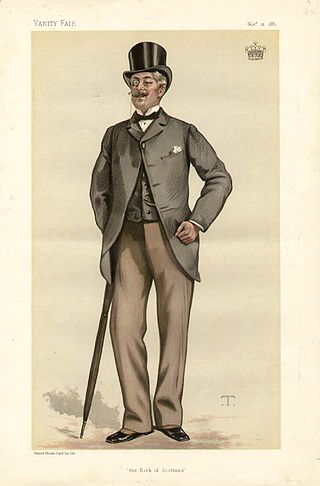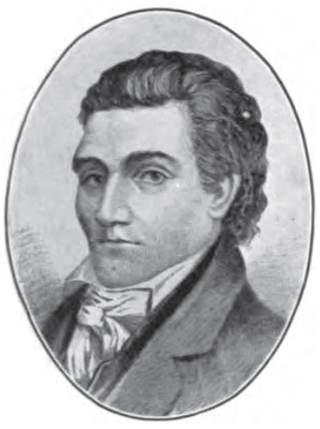The Toledo War (1835–36), also known as the Michigan–Ohio War or the Ohio–Michigan War, was a boundary dispute between the U.S. state of Ohio and the adjoining territory of Michigan over what is now known as the Toledo Strip. Control of the mouth of the Maumee River and the inland shipping opportunities it represented, and the good farmland to the west were seen by both parties as valuable economic assets.

The League of American Bicyclists (LAB), officially the League of American Wheelmen, is a membership organization that promotes cycling for fun, fitness and transportation through advocacy and education. A Section 501(c)(3) nonprofit organization, the League is one of the largest membership organizations of cyclists in the United States.

Morrison Remick "Mott" Waite was an American attorney, jurist, and politician from Ohio who served as the seventh chief justice of the United States from 1874 until his death in 1888. During his tenure, the Waite Court took a narrow interpretation of federal authority related to laws and amendments that were enacted during the Reconstruction Era to expand the rights of freedmen and protect them from attacks by white supremacy groups such as the Ku Klux Klan.

The territory of the United States and its overseas possessions has evolved over time, from the colonial era to the present day. It includes formally organized territories, proposed and failed states, unrecognized breakaway states, international and interstate purchases, cessions, and land grants, and historical military departments and administrative districts. The last section lists informal regions from American vernacular geography known by popular nicknames and linked by geographical, cultural, or economic similarities, some of which are still in use today.

William Henry Harrison Miller was an American lawyer and Attorney General of the United States.
The Ancient and Honorable Order of E Clampus Vitus (ECV) is a fraternal organization dedicated to the preservation of the heritage of the American West, especially the history of the Mother Lode and gold mining regions of the area. There are chapters in California, Nevada, Arizona, New Mexico, Colorado, Utah, Washington, Idaho, Oregon, Montana and Wyoming. Members call themselves "Clampers." The organization's name is in Dog Latin, and has no known meaning; even the spelling is disputed, sometimes appearing as "Clampus," "Clampsus," or "Clampsis." The motto of the Order, Credo quia absurdum, generally interpreted as meaning "I believe it because it is absurd;" is a Latin phrase popularly misattributed to Tertullian.
Titus Hosmer was an American Founding Father, lawyer, and jurist from Middletown, Connecticut. He was a delegate for Connecticut to the Continental Congress in 1778, when he signed the Articles of Confederation.

Hoyt Sherman, a member of the prominent Sherman family, was an American banker. He served as a member of the Iowa House of Representatives in 1866.

Robert Francis St Clair-Erskine, 4th Earl of Rosslyn, styled Lord Loughborough from 1851 until 1866, was a British Conservative politician. He served as Captain of the Gentlemen-at-Arms under Lord Salisbury between 1886 and 1890.
Joseph Walker McCorkle was an American lawyer and politician who served one term as a California congressman from 1851 to 1853.

Martin Baum was an American businessman and politician.

Hezekiah Lord Hosmer was a United States representative from New York. Hosmer came from a prominent family; his father Titus Hosmer signed the Articles of Confederation for Connecticut, and Hosmer's brother Stephen became the Chief Justice of the Connecticut Supreme Court. Hezekiah studied law and was admitted to practice in the mayor's court of Hudson, New York. He was recorder of Hudson in 1793 and 1794, and was elected as a Federalist to the Fifth Congress, serving from March 4, 1797 to March 3, 1799. He was one of the impeachment managers appointed by the House of Representatives in 1798 to conduct the impeachment proceedings against Tennessee U.S. Senator William Blount.

Lloyd Tevis was a banker and capitalist who served as president of Wells Fargo & Company from 1872 to 1892. He also co-founded the Pacific Coast Oil Company, the progenitor to Chevron Corporation.

William Cary Van Fleet was an associate justice of the California Supreme Court and a United States district judge of the United States District Court for the Northern District of California.

The Order of the Sons of Hermann (German: Der Orden der Hermanns-Soehne, also known as Hermann Sons, is a mutual aid society for German immigrants that was formed in New York, New York, on July 20, 1840, and remains active in the states of California, Ohio, and Texas today. Open to members of any heritage today, the order provides low-cost insurance and mutual aid and has historically promoted the preservation of the German language and traditions.

James Dabney Thornton was an American lawyer and judge who served as associate justice of the Supreme Court of California from 1880 to 1891.

Bertha Constance Perry Ronalds was an American philanthropist and socialite during the Gilded Age.













